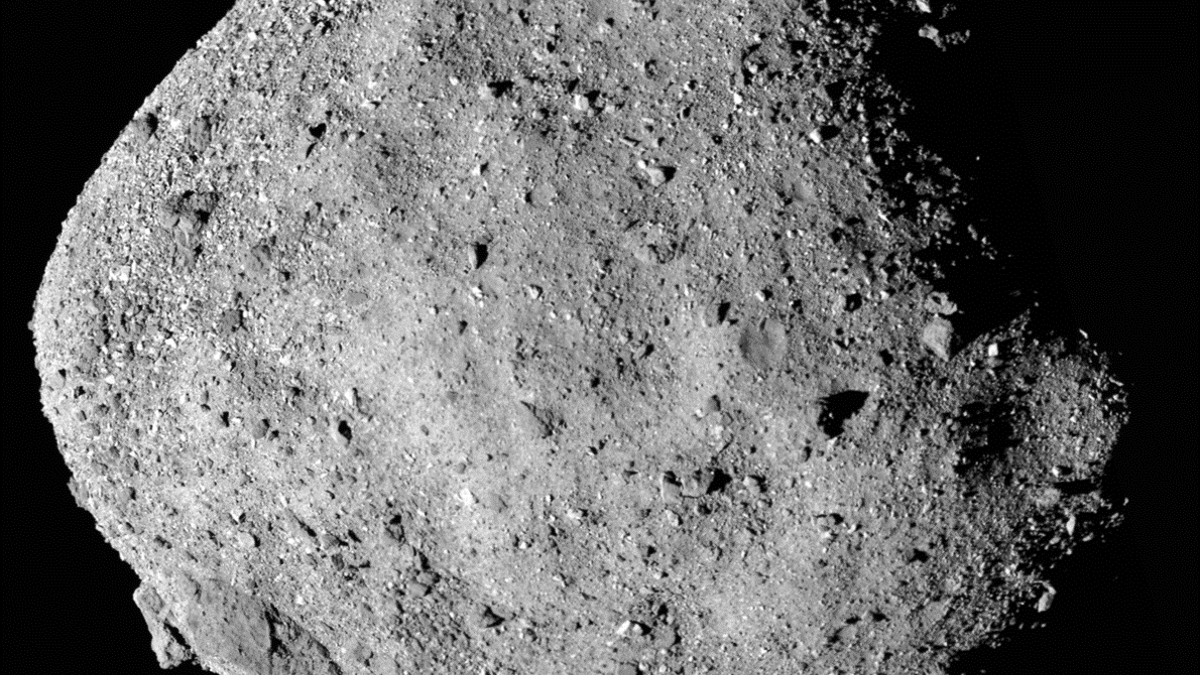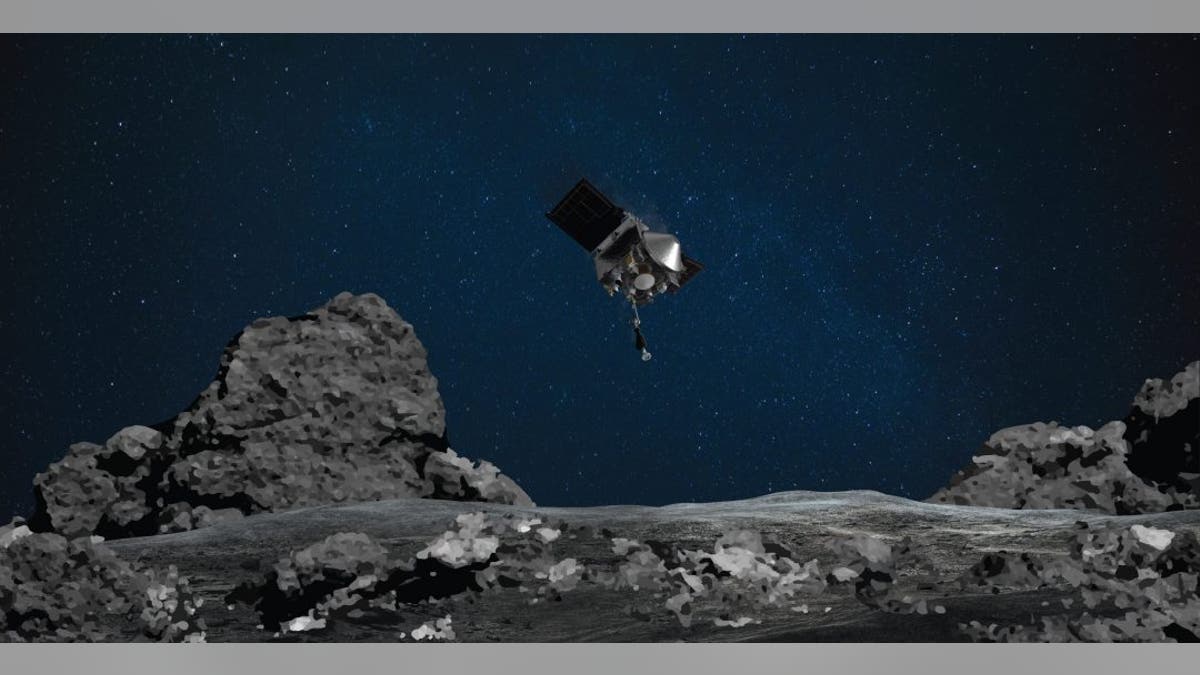NASA takes aim at near-Earth asteroid named Bennu
OSIRIS-REx is NASA's first mission to an asteroid to retrieve a sample and return it to Earth.
NASA’s OSIRIS-REx spacecraft will make its historic touchdown on asteroid Bennu Tuesday, retrieving a sample from the space rock that will be returned to Earth.
OSIRIS-REx will make its ‘touch-and-go’ touchdown, with NASA noting that the mission will help unlock the secrets of the Solar System. “Asteroids are remnants of the building blocks that formed the planets in our solar system, and perhaps enabled life on Earth,” it explained in an email to Fox News.
The mission will also provide information that could help protect our planet from a possible collision with Bennu.
NASA FINDS PARTS OF ANOTHER ASTEROID ON ASTEROID BENNU
Bennu is about as tall as the Empire State Building, and could potentially threaten Earth in the next century, according to NASA. “Bennu has a 1:2700 chance of impacting Earth in the late 2100s, but this mission will also help us learn more about protecting ourselves if necessary,” the agency explains on its website.

This is a mosaic image of asteroid Bennu, from NASA’s OSIRIS-REx spacecraft. (NASA/Goddard/University of Arizona)
The van-sized spacecraft is aiming for the relatively flat middle of a tennis court-sized crater named Nightingale. Boulders as big as buildings loom over the targeted touchdown zone.
The touchdown is scheduled for 6:12 p.m. EDT on Tuesday.
NASA PICKS SITE ON ASTEROID BENNU WHERE IT WILL GRAB SPACE ROCK SAMPLE
The spacecraft will use a robotic arm to grab the sample from Bennu, which is about 200 million miles from Earth. Contact should last five to 10 seconds, just long enough to shoot out pressurized nitrogen gas and suck up the churned dirt and gravel. Programmed in advance, the spacecraft will operate autonomously during the unprecedented touch-and-go maneuver. With an 18-minute lag in radio communication each way, ground controllers for spacecraft builder Lockheed Martin near Denver can't intervene.

This illustration shows NASA’s OSIRIS-REx spacecraft descending toward asteroid Bennu to collect a sample of the asteroid’s surface. (NASA/Goddard/University of Arizona)
OSIRIS-Rex can try again to retrieve the sample if the first attempt isn't successful.
OSIRIS-REx, which stands for Origins, Spectral Interpretation, Resource Identification, Security-Regolith Explorer, launched in September 2016 from Cape Canaveral Air Force Station. The spacecraft reached Bennu in December 2018.
JAPAN’S HAYABUSA2 SPACECRAFT SUCCESSFULLY 'BOMBS' ASTEROID
The craft is scheduled to depart Bennu next year and will deliver the asteroid sample to Earth on Sep. 24, 2023.
NASA recently revealed that parts of another asteroid, Vesta, have been spotted on the surface of Bennu.
In April 2019, Japan’s Hayabusa2 spacecraft successfully “bombed” asteroid Ryugu in the name of scientific research.
CLICK HERE TO GET THE FOX NEWS APP
Earlier in 2019, Hayabusa2 briefly touched down onto Ryugu and fired a scientific research “bullet” into the space rock.
The Associated Press, Fox News’ Jennifer Earl and Chris Ciaccia contributed to this article. Follow James Rogers on Twitter @jamesjrogers









































